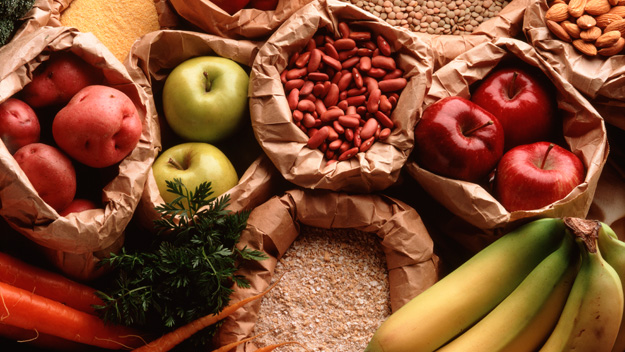A well planned plant based diet can provide all the essential nutrients required for a healthy, balanced diet while also boasting various health benefits.
Including more plant based foods has been found to be beneficial in managing weight and provides protection from common lifestyle diseases, including heart disease, high blood pressure, diabetes and some forms of cancer.
Researchers believe that weight control is achieved because a plant based diet is high in fruits, vegetables, grains and legumes, all of which are naturally low in fat. Plant based foods also contribute more fibre, helping us to feel fuller after meals, reducing the need for snacking.
But what about meat?
Research has consistently shown that a well planned plant based diet can be better for overall health than one that includes meat. A typical vegetarian diet contains more fibre, phytochemicals, vitamin C and antioxidants while containing less salt and fat, especially saturated fat and cholesterol. If the thought of cutting meat out of your diet altogether seems too challenging, try cutting down on your intake as a start. Include more whole plant foods and think of meat more as a side dish than the focus of a meal. For more ideas on plant based meals call one of the Sanitarium Nutrition Service dietitians on 1800 673 392 or email us at [email protected].
How can I be on my way to achieving a well planned, balanced plant based diet?
Eating a variety of whole plant foods, as minimally processed as possible, will provide all the protein, iron and zinc your body needs. Follow our advice to help achieve a nutritionally sound plant based diet:
PROTEIN Include alternative plant-based proteins, such as legumes, nuts, seeds and soy. For example, use cashew nuts, canned chickpeas or tofu in your favourite stir-fry recipe, add some canned beans to soups and salads, pine nuts, pecans or lentils into a pasta dish or have a handful of nuts and seeds as a between-meals snack.
IRON Spinach, broccoli, almonds, wholegrain cereals and lentils are all plant-based sources of iron. To enhance the absorption of iron, try having a food containing vitamin C – such as an orange or a tomato – to accompany your meal.
ZINC is especially important to boost the immune system. To include enough zinc in your diet, try snacking on some pumpkin seeds and cashews for a hit. Other nuts, beans and legumes are also good plant sources.
VITAMIN B12 Choose foods – in particular soy milks that are fortified with vitamin B12. Milk, yoghurt and eggs are also sources of this vitamin.
OMEGA-3 ESSENTIAL FATTY ACIDS Good for heart health, walnuts, soybeans and canola oil all contain omega-3 fats. Try sprinkling some walnuts through salads, cooking with a small amount of canola oil and using soy milk on your cereal.
This information is brought to you by the Sanitarium Nutrition Service. If you would like more information email [email protected]
Your Say: Do you follow a plant-based diet? Tell us your thoughts below…




